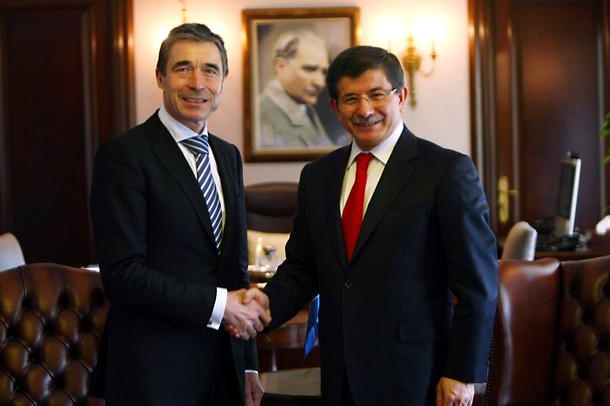
From Soner Cagaptay and Richard Outzen, CNN Global Public Square: Only a few years ago, Turkey’s commitment to NATO was in doubt. Some were even suggesting that Turkey would abandon the alliance — or that at least, the alliance should seriously lower its expectations.
But recent events in Syria, including last week’s downing of a Turkish plane by Damascus, and Turkish-Iranian competition in the Middle East have been increasing NATO’s worth for the Turks. . . .
For the moment, at least, Turkey has found comfort in NATO’s security. But Ankara’s long-term commitment to the alliance should not be taken for granted, because Turkey has at least two strategic alternatives to NATO.
The first is remaining ideologically agnostic, grouping with other emerging economic powers to maintain a truly nonaligned and balanced strategic approach. This entails acting in unison with the BRICs — Brazil, Russia, India and China. (Though the “R” in that acronym could go missing if Turkish-Russian differences on Syria are exacerbated further.)
The second alternative is to recognize that Turkey has more in common with other emerging democracies than with economically dynamic authoritarian regimes. This form of nonalignment would place Turkey in a wider group referred to as IBSATI — India, Brazil, South Africa, Turkey and Indonesia. Although IBSATI would leave more room for Turkish cooperation with the West than BRIC alignment, it could still preclude joint coordination with NATO.
For now, BRIC remains an analytic tool for investors more than for geo-strategists, and IBSATI is more of a pipe dream. Nevertheless, NATO should jealously promote and guard its “leading acronym” status in Ankara.
Soner Cagaptay is a senior fellow at the Washington Institute for Near East Policy and a GPS contributor. You can find all his blog posts here. Col. Richard Outzen is a foreign area officer in the U.S. Army. The views expressed in this article are solely those of Soner Cagaptay and Col. Richard Outzen. (photo: Getty)
Image: getty%207%2010%2012%20Rasmussen%20Davutoglu.jpg
